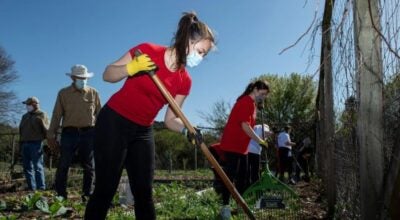Hungry children in Mississippi might be missing out on free after-school supper program
Published 2:50 pm Monday, April 2, 2018
Mississippi’s participation rate in a federally funded after-school supper program is one of the lowest in the nation, according to a new report. Hundreds of hungry children may be missing out on free meals they are eligible to receive.
Between October 2015 and October 2016, the percentage of children in the state who received a free after-school supper increased by 19 points, according to the report by the nonprofit Food Research and Action Center. Despite the increase, the report found a large discrepancy between the number of children who receive free lunch and those who are eligible for and could benefit from a free dinner. In October 2016, for every 100 low-income children in Mississippi who received a school lunch through the federal program, not even one child received a free dinner. Nearly 18,100 children participated in an after-school food program that month; the majority of these kids received a snack, not a meal. Less than 10 percent received supper, one of the lowest rates in the nation.
The authors of the report say children may be missing out because there often aren’t enough after-school programs in low-income areas able to provide the federally-funded snack and dinner programs. “After-school suppers are a game-changer for reducing childhood hunger and drawing children into after-school enrichment programs,” said Jim Weill, president, Food Research & Action Center in a statement. “One of the most effective ways to increase participation in after-school suppers is to ensure that there are more programs that offer after-school activities to the children who need them, and that those programs provide suppers,” he said Mississippi had 82 sites that provided supper in October 2016, a nearly 52 percentage point increase in sites from October 2015.
The after-school supper program was established nationwide through the Healthy, Hunger-Free Kids Act of 2010, which is largely administered through after-school programs. The supper program is funded by the Child and Adult Care Food Program. That program and the National School Lunch Program also provide funding for after-school snacks.
Originally published by The Hechinger Report





